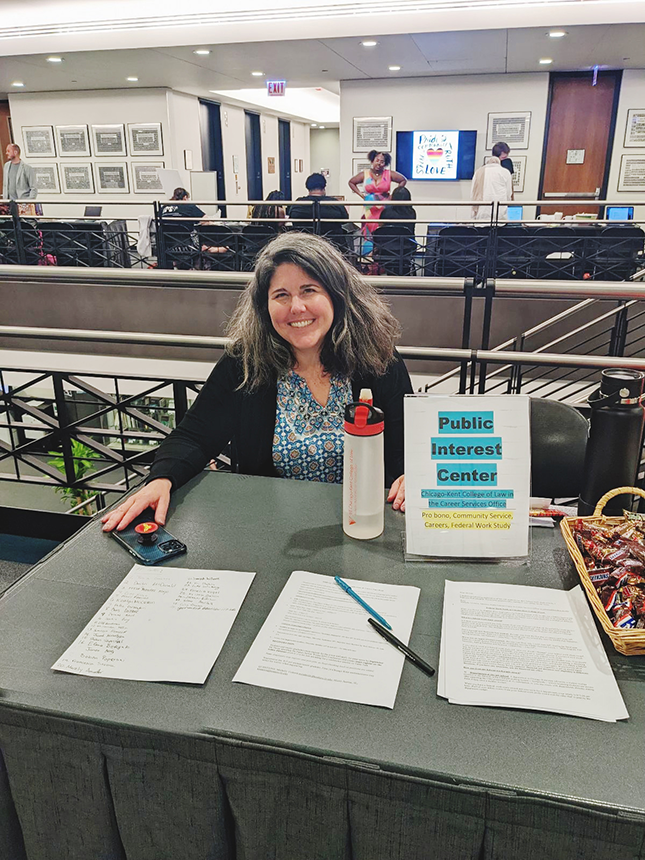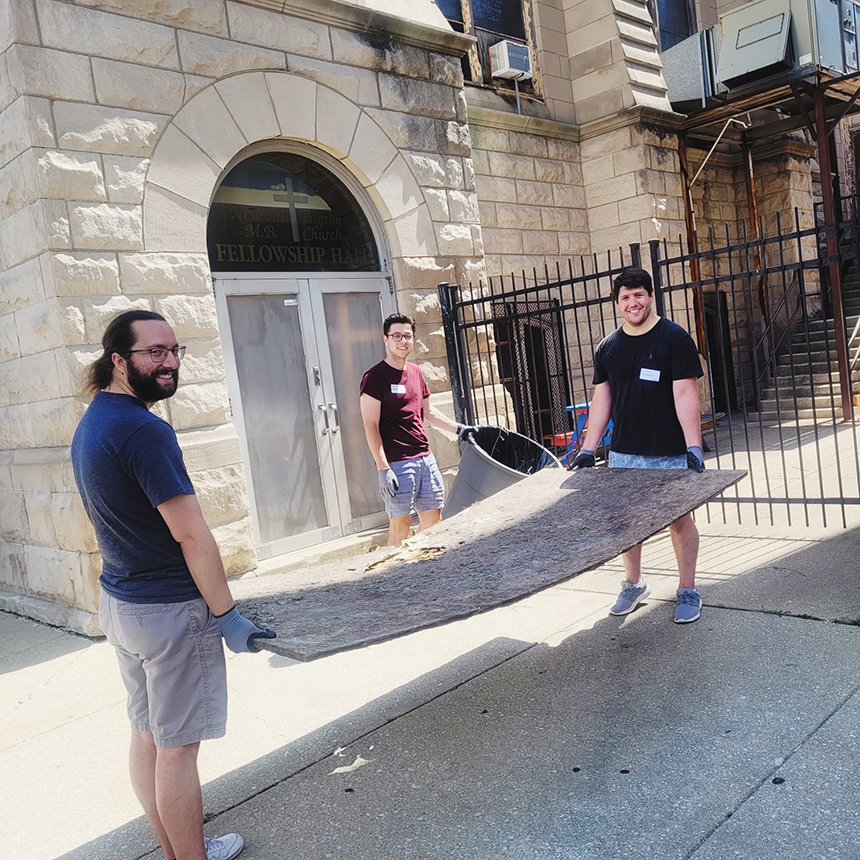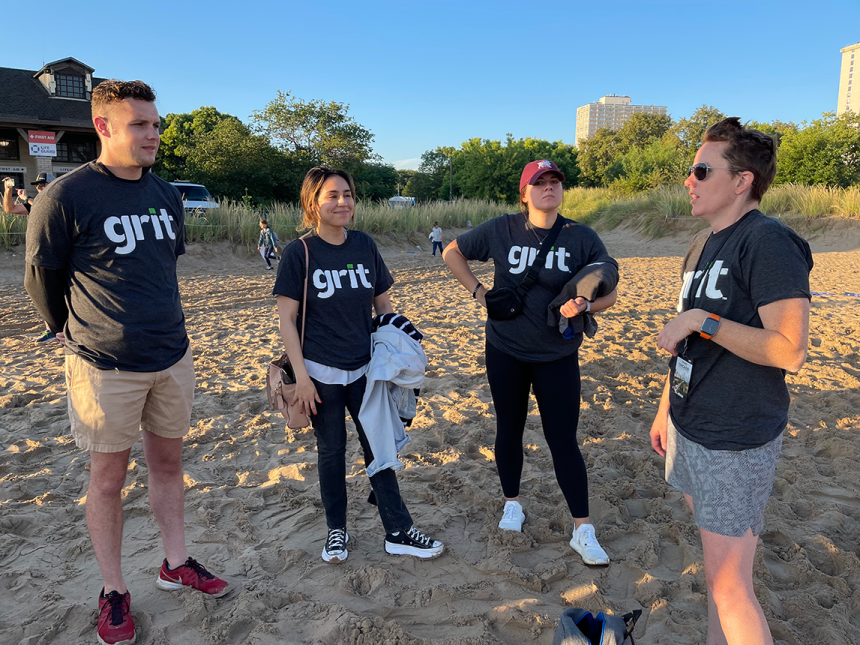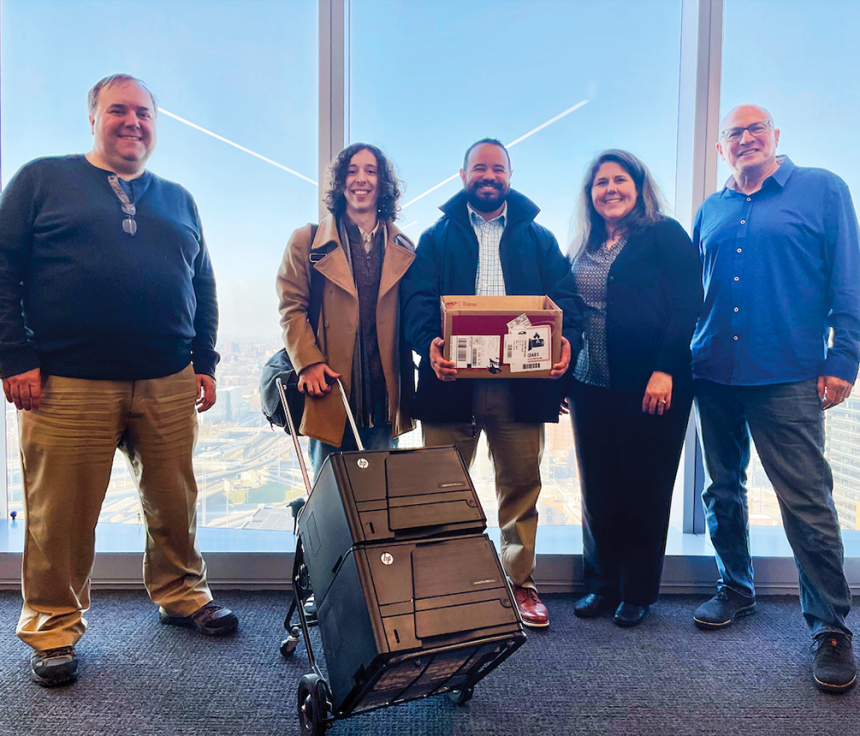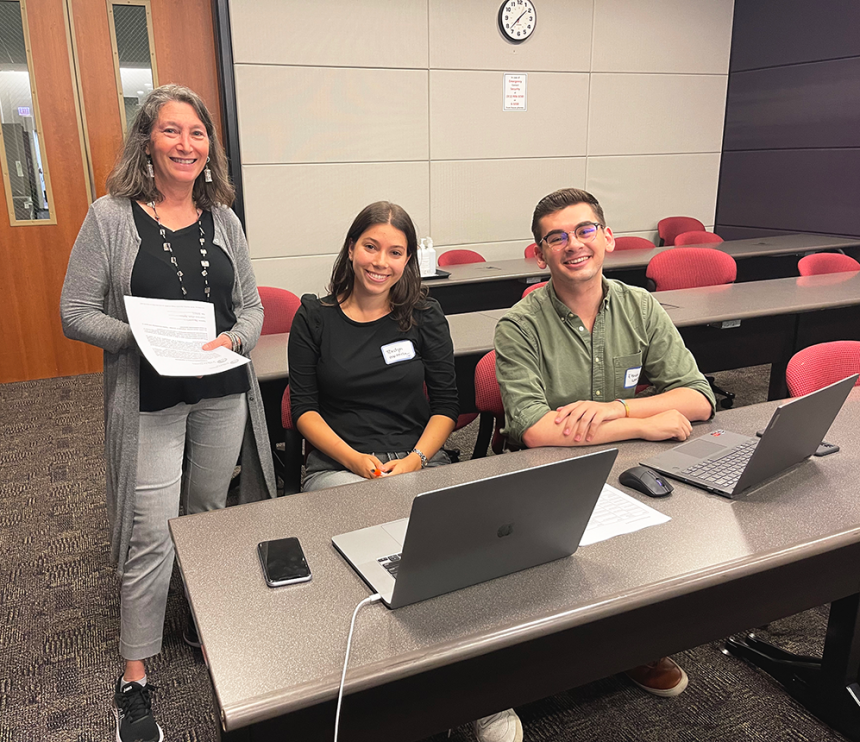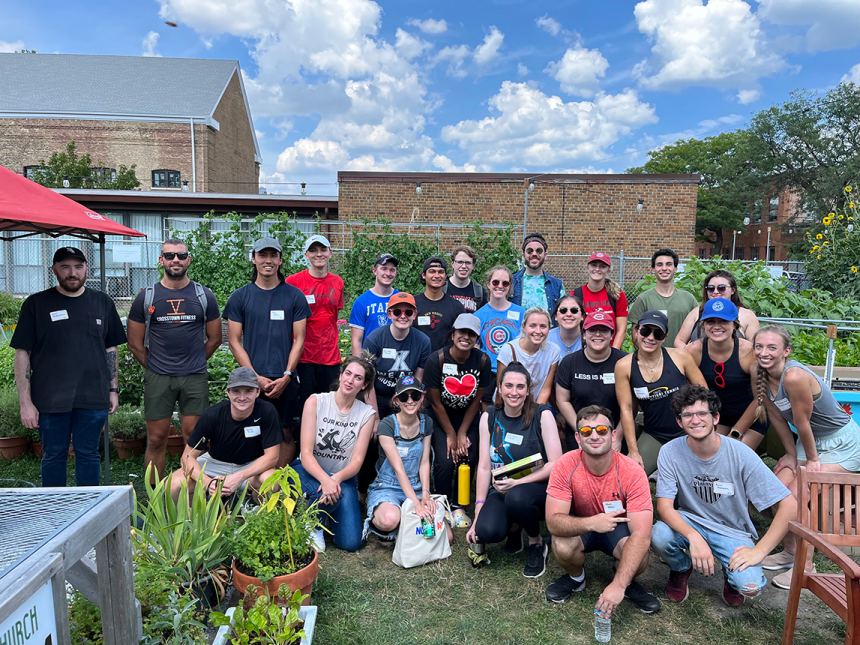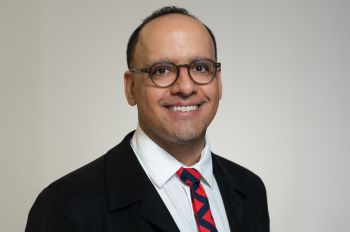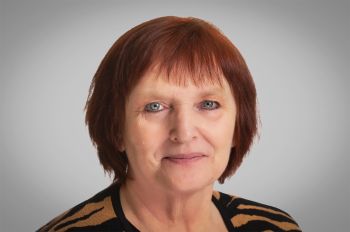A History of Service
Chicago-Kent Adds to Pro Bono Lineage with Opening of Public Interest Center
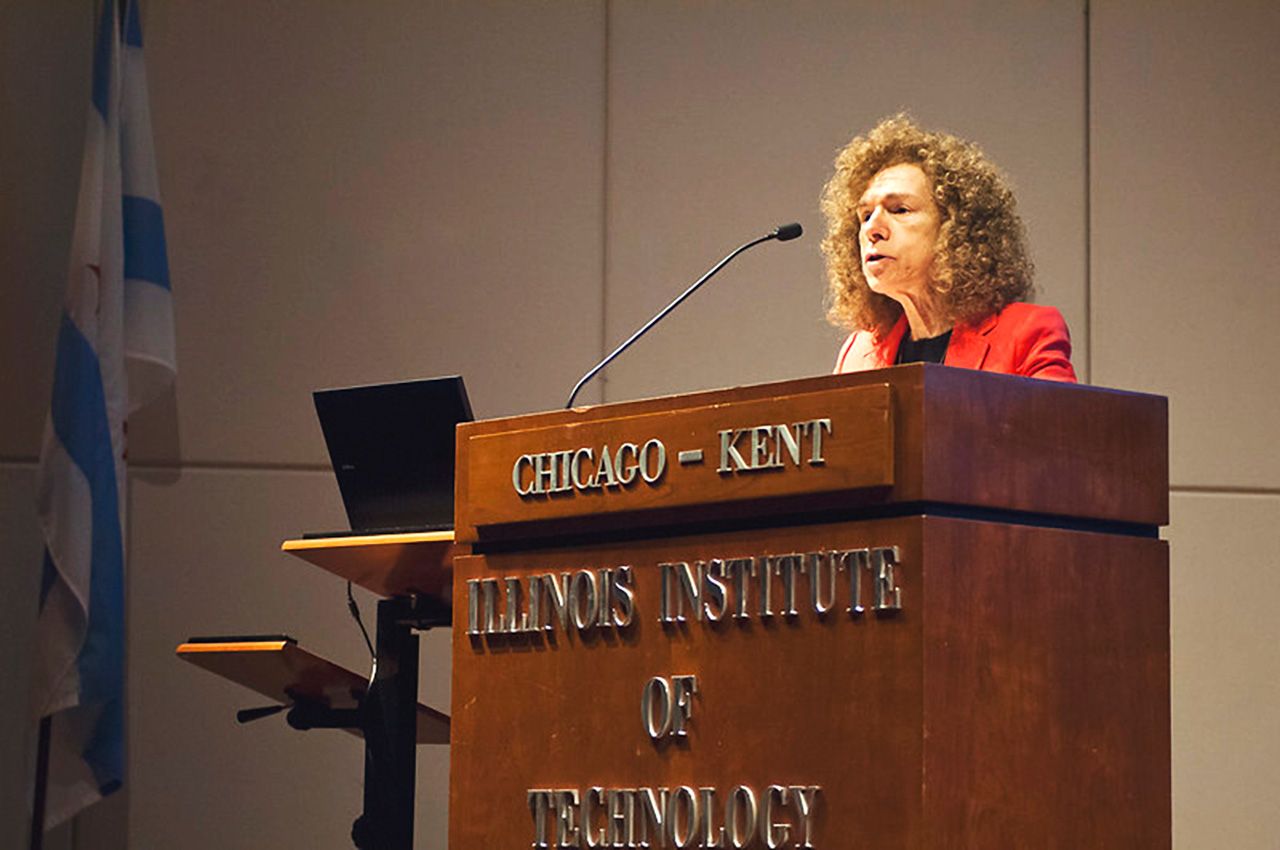
Editor's note: this is a story from the Spring 2023 Chicago-Kent Magazine. To read the magazine in full, follow this link.
“I want to inspire every law student and lawyer and encourage them to take the time to do pro bono work,” says Michelle Vodenik, director of Chicago-Kent College of Law’s Public Interest Center. “It’s rewarding, you gain skills, and you make an impact in people’s lives that you oftentimes can see immediately.”
The Public Interest Center at Chicago-Kent is a new addition. It opened during the 2022–23 academic year, and staff have already hit the ground running.
“Developing the Public Interest Center at Chicago-Kent is my dream come true. This is what I’ve hoped I’d get to do since I started, to bring all the public interest and pro bono pieces that were already here at Chicago-Kent together and build upon them, so we can make a much bigger impact in the Chicago area in terms of supporting people who need access to justice,” says Vodenik.
Chicago-Kent has a long history of supporting public interest.
The law school was one of the first funders of Illinois Legal Aid Online, and the venture lived at Chicago-Kent for years before moving to its own space.
Vivien Gross, a clinical professor at Chicago-Kent for more than four decades before passing away in March 2023, ran the Public Interest Resource Center, which tracked student community service hours. Every year, she held a ceremony to honor students who completed 50 or 250 hours of community service during their time in law school.
Chicago-Kent also runs the Self-Help Resource Center (SHRC) at the Richard J. Daley Center in Chicago, where student volunteers help pro se litigants navigate the justice system. In a nation where upward of 80 percent of litigants appear unrepresented, many of whom are up against a represented opponent, the desk can help close the justice gap.
“They’re coming into this situation maybe not understanding all the words that are being used in the Daley Center, or how to navigate it, because it’s complicated,” says Tobias Rodriguez ’19, the associate director of Career Services at Chicago-Kent. “If someone comes in and says, ‘I don’t know how to fill out these forms,’ no one else there is going to help them. That just doesn’t exist.”
“That’s one of the reasons I enjoy the Self-Help Resource Center so much is because I’m helping people with things that seem very basic to me,” he adds. “But it seems basic to me because I come from a place of privilege.”
The SHRC was shut down during the COVID-19 pandemic but re-opened in April 2023 with a donation of new computers and printers from Chapman and Cutler LLP.
Reopening the SHRC is just one of the ways that the Public Interest Center is working to close the justice gap and provide opportunities for law students who are dedicated to the cause.
“I get very angry about injustice,” says Joseph Strom ’25, student manager at the Public Interest Center.
“There are a lot of students who are very passionate people,” he says. “They’re here because they care about justice, and they’re go-getters on that front. They want to make positive change in the world.”
The goal of the Public Interest Center is to make it easier for students, such as Strom to pursue public interest. To make that happen, Vodenik took all aspects of public interest that existed at Chicago-Kent and pulled them together under the umbrella of the Public Interest Center.
“A lot of schools have a public interest center, and it’s very important to have one. We were always doing all the parts, we just weren’t doing it in an organized way,” she says. “Now, requests come in in a more organized fashion. I have organizations reaching out to me about pro bono opportunities, whereas before, they didn’t really have a place to reach out to.”
The center’s focus is to provide students with the resources that they may need to go into the public interest field.
“For us, part of the goal is to show them that public interest can lead to financial stability. That there are ways to make change in the world and do public interest work that can be tangible careers. It doesn’t have to be this sacrificial thing for only the most idealistic people. If you want to be pragmatic, if you want to have stability, you can still do this stuff,” Strom says.
Vodenik is building on the existing structure by creating volunteer opportunities every month for students, and by creating a pro bono pledge—a dedication to doing 50 hours of community service that students can take during 1L orientation. She is also working to establish relationships with pro bono counsel at outside law firms.
And that’s just the beginning.
“I would really like to have more designated, named public interest scholarships for students. Many students, if the opportunity isn’t paid, they’re not going to be able to take that opportunity. That’s even more true if you’re a first-generation law student or you come from a lower income family,” says Vodenik. “Law school is very expensive. There are students that very much would like to do public interest work, but because they’re stretched financially and will take a paid position such as a law clerk, when what they really want to do is a summer at a public defender’s office. That is a shame.”
In the state of Illinois, attorneys aren’t required to do pro bono work, but they are required to report whether or not they did any or donated to a legal aid organization every year. Studies have indicated that law students who are exposed to volunteer opportunities in law school may be more likely to engage in pro bono work in their careers.
In a country with an immense justice gap, the staff at the Public Interest Center want to do their small part to close it. In 2021 low-income Americans did not receive any or enough legal help for 93 percent of their legal problems. Only 28 percent of that group believe that the American justice system will treat them fairly.
To Strom, that’s unacceptable.
“I see the law as a way to make sure we’re taking care of everyone—that no one gets left behind,” he says. “All of this is here to make sure we can do that in a way that’s not violent and vindictive, and instead that people can be taken care of and believe that there’s some type of fairness in the world and that fairness can apply to them.”
“That’s something I think all of us should dedicate a little bit of time to in our professional lives.”
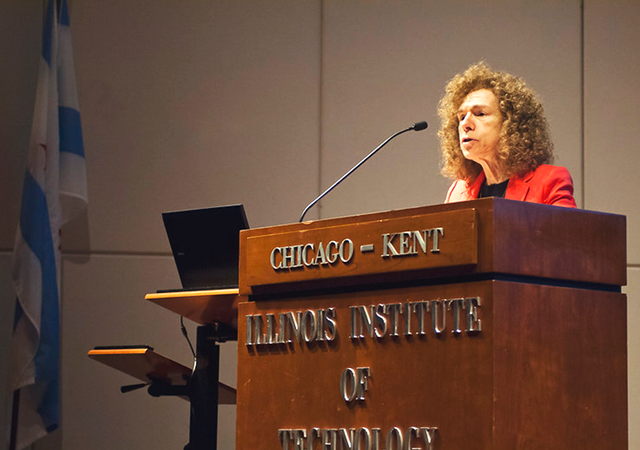
Public Interest Center
Since its opening in fall 2022, the Public Interest Center has been a resource for students interested in pursuing public interest law. Students have participated in numerous volunteering events throughout the 2022-23 academic year.

